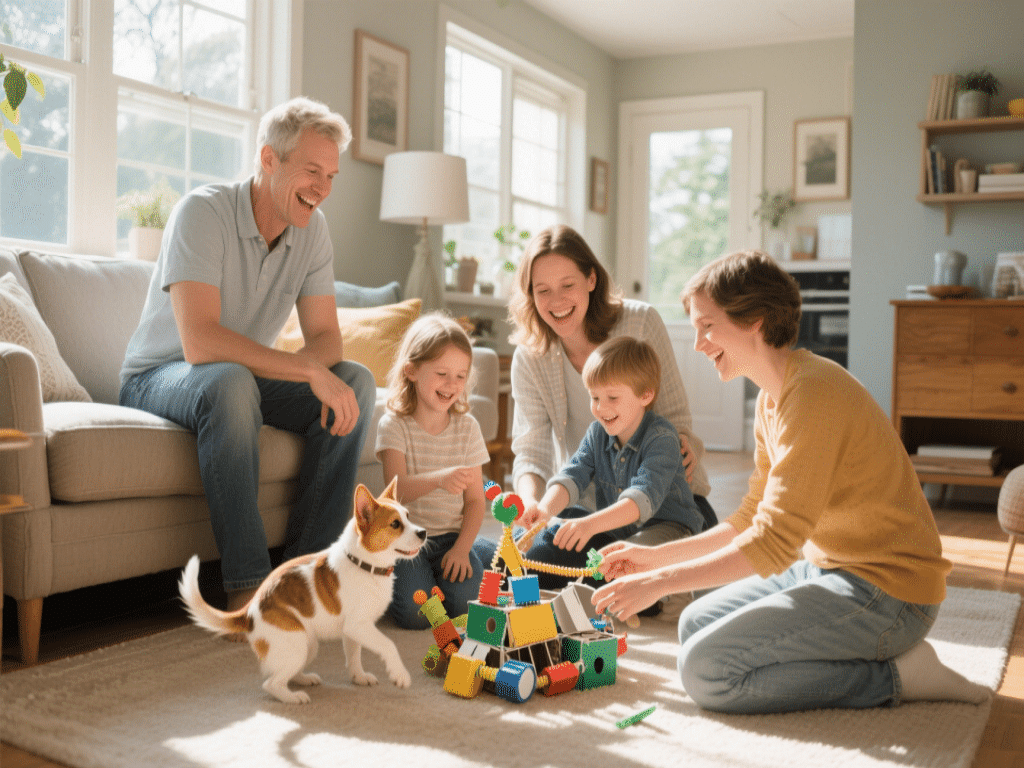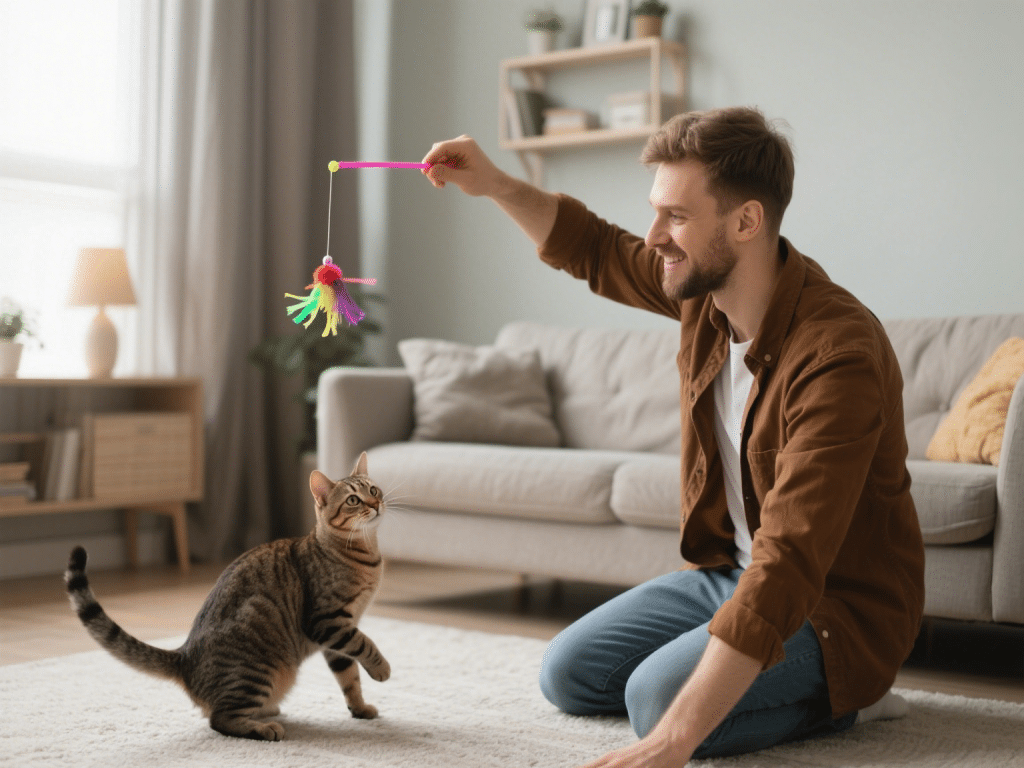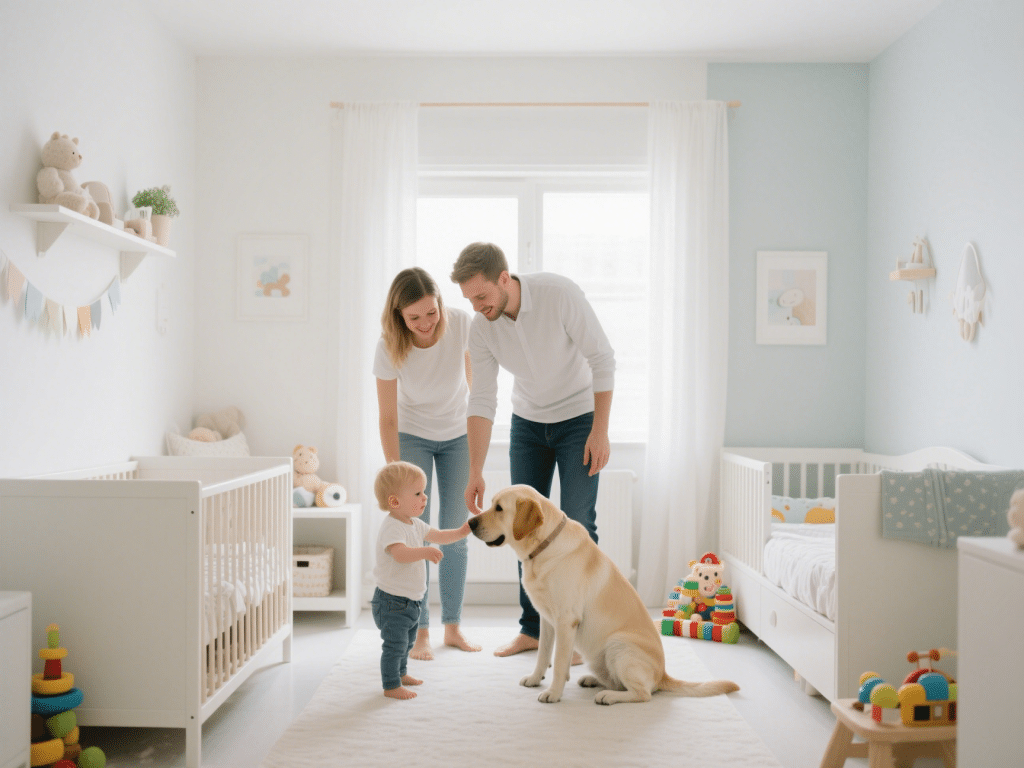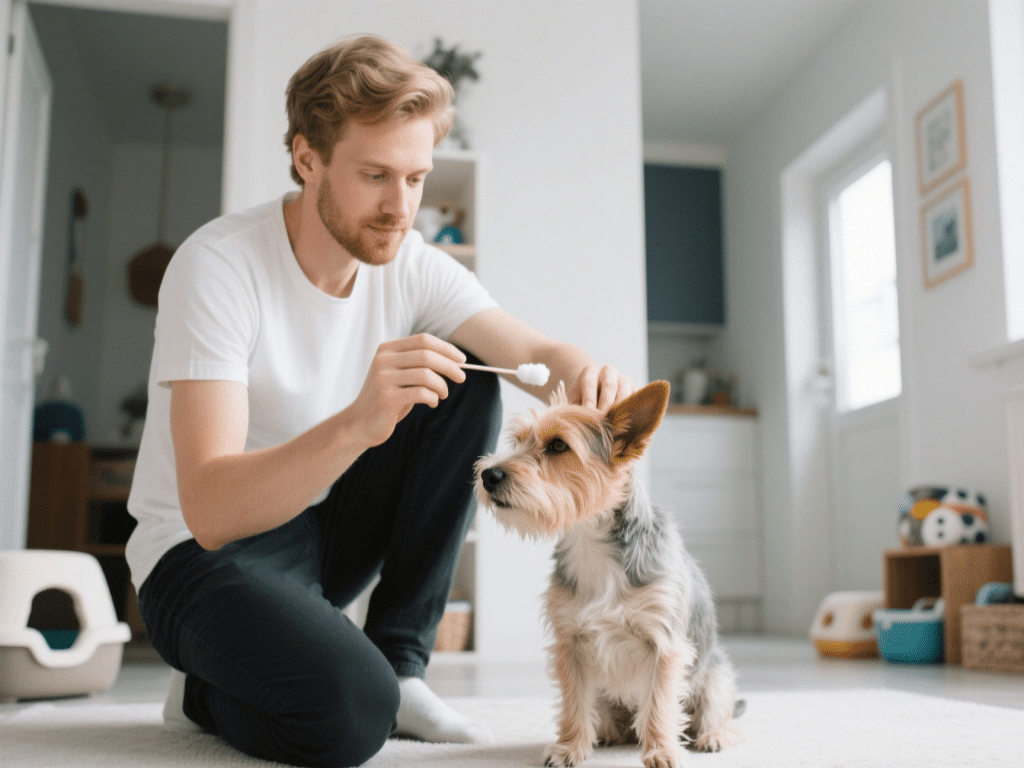Introduction
Engaging pets with stimulating toys is essential for physical exercise and mental enrichment. Rather than purchasing expensive toys, you can create fun, safe playthings using everyday household items. This guide provides a variety of DIY toy ideas for cats and dogs, emphasizing safety, creativity, and cost savings.
Safety First: General Guidelines
Non-Toxic Materials: Ensure all materials (fabric, cardboard, plastic) are free of harmful chemicals.
Secure Construction: Use pet-safe glue or stitching to prevent small pieces from becoming choking hazards.
Appropriate Size: Tailor each toy to your pet’s size to avoid accidental swallowing.
Supervised Play: Especially with string-based toys for cats or chewable items for dogs, supervise playtime to prevent injury.
DIY Cat Toys
1. Feather Wand
Materials:
Wooden dowel or sturdy stick (about 12–18 inches)
Colorful feathers (natural or synthetic, non-toxic)
Jute twine or ribbon
Hot glue gun or non-toxic adhesive
Instructions:
Attach one end of the twine or ribbon to the dowel with a knot or glue.
Secure feathers to the other end of the twine with glue; let dry.
Wave the wand to mimic prey movements.
Benefits: Encourages jumping, chasing, and pouncing—natural predatory behaviors.
2. Cardboard Box Maze
Materials:
Several cardboard boxes of varying sizes
Scissors or box cutter
Non-toxic tape
Instructions:
Cut entry and exit holes on opposite sides of boxes.
Stack boxes or link them to create a maze path.
Place catnip or toys inside to entice exploration.
Benefits: Stimulates curiosity, provides hiding spots, and promotes physical activity.
3. Sock and Pom-Pom Toy
Materials:
Old cotton sock
Yarn pom-poms (store-bought or homemade)
Catnip (optional)
Needle and thread or sewing machine
Instructions:
Place a few pom-poms (and a pinch of catnip) inside the sock.
Sew the sock closed securely.
Tie a knot at the end of the sock to create a textured tail.
Benefits: Lightweight, inexpensive, and appeals to batting and kicking instincts.
DIY Dog Toys
1. Braided T-Shirt Tug Toy
Materials:
Three old cotton T-shirts or fabric scraps
Scissors
Instructions:
Cut T-shirts into long strips (2–3 inches wide).
Gather three strips and tie a knot at one end.
Braid the strips tightly and tie a knot at the other end.
Trim any excess tails.
Benefits: Durable for tugging, washable, and soft on teeth.
2. Plastic Bottle Puzzle Toy
Materials:
Empty plastic water bottle (label removed)
Old sock
Dog kibble or small treats
Scissors
Instructions:
Place a few treats inside the bottle.
Slip the bottle into the sock and tie a knot at the open end.
Allow the dog to nudge and roll to release treats.
Benefits: Mental stimulation and encourages slow feeding.
3. Tennis Ball Treat Dispenser
Materials:
Tennis ball
Sharp utility knife or box cutter
Instructions:
Cut a slit (about 1–2 inches) on one side of the tennis ball.
Squeeze the ball slightly to open the slit.
Insert small treats or kibble.
Let your dog roll and chew to extract treats.
Benefits: Promotes problem-solving and reduces boredom. Suitable for moderate chewers.
Maintenance and Rotation
Inspect Toys Weekly: Check for loose parts, fraying, or damage. Repair or discard unsafe toys immediately.
Rotate Toys: Introduce different toys every week to maintain interest and prevent boredom.
Wash Fabric Toys: Machine-wash or hand-wash cotton or fabric-based toys monthly to remove dirt and bacteria.
Conclusion
Creating DIY cat and dog toys from household items is a cost-effective way to enrich your pets’ lives. By following safety guidelines and using readily available materials, you can design interactive toys that satisfy natural instincts, promote exercise, and foster bonding. Experiment with these ideas, customize based on your pet’s preferences, and enjoy watching your furry friends play happily at home.










Comments on "DIY Cat and Dog Toy Ideas Using Household Items" :